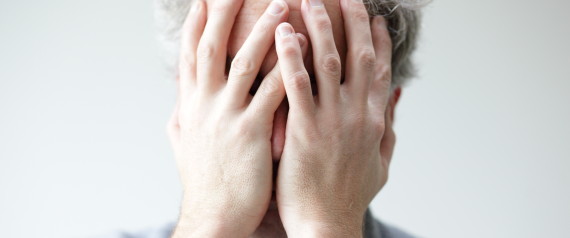Shame is a feeling state. It is a deep-down, red-faced humiliation and mortification with oneself.
Through the lens of shame, we look at ourselves with complete disgust, revulsion, and contemptibility. We judge ourselves harshly, and show no mercy. We see ourselves as the epitome of gross imperfection, enormous stupidity, complete failure, and abject incompetence. Shame is a powerful force, and it can be a driving factor in suicidal thinking.
Shame is associated with intense feelings of disgrace, dishonor, and condemnation. It is also a major component of ostracism, shunning (think Hester Prynne and her Scarlet “A”), and punishment.
Shame is not the same thing as embarrassment. When we are embarrassed we feel, in varying degrees, uncomfortable with ourselves for something we have done or experienced. We are discomfited by our behavior. For example, we look in a mirror and realize that we had a piece of spinach stuck to our front tooth during our dinner date as we laughed and acted charming.
Nor is shame the same as guilt. We feel guilty when we have violated our personal standard. For example, we forgot to send our favorite Aunt Minnie a birthday card or we didn’t check up on a sick friend.
The etymology of the word “shame” is rooted in the words “to cover up, hide.” And, that’s exactly what we do when we feel ashamed; we want to hide and cover up. We avert our eyes, lower our head, and our shoulders slump. We want to disappear. And when there is intense shame, there is vasodilation (blushing) along with increased body heat and warmth.
Like fear, shame is a learned response. No one is born with shame. Shame is passed along by super-critical parents, relatives, employers, teachers, and the like. They regularly make denigrating comments that make you feel horrible about yourself. You might hear that you are stupid, worthless, unlovable, ugly, fat, a failure, incompetent, and any number of put-downs that attack your very essence. These critical folks (from their own wounded and unhealed hearts) tell you these terrible things about yourself, and you believe them. You unconsciously absorb their personal poison and drink it in as truth. You forever feel not good enough, not lovable enough, not enough enough.
You can feel ashamed when you are stopped for a DUI (i.e., driving while intoxicated); are verbally abused in front of your co-workers; or tell your friends your father died of a heart attack when he actually died by suicide. You can feel shame when you learn you are infertile or you need to file for bankruptcy. You can be filled with shame and the attendant self-loathing after you rage at your children or realize you have sent a scathing email to the wrong person.
Perfectionists, understandably, carry a tremendous load of shame. Members of dysfunctional families where there is addiction, violence, anger, and control issues also live with shame every day of their lives. Shame is all too common in cases of child abuse and child neglect. And, we all carry the secret shame of being ashamed. Shame says, I am a bad person, a horrible person, a no-good person.
Brené Brown, PhD, LMSW, is a researcher and storyteller who studies vulnerability, courage, worthiness, and shame. (Check out her fab TED talks on shame and vulnerability.) Brown has discerned what she calls her 1-2-3’s of shame:
1. “Shame is universal. It is one of the most primitive of human emotions. The only people who don’t have shame are those who have no empathy and lack the capacity for human connection. Here’s your choice: Fess up to experiencing shame or admit that you’re a sociopath.”
2. “We are all afraid to talk about shame.”
3. “The less we talk about shame, the more control shame has over our lives.”
Further, Brown has identified 12 categories of shame:
• Addiction
• Aging
• Appearance and body image
• Being stereotyped or labeled
• Family
• Mental and physical health
• Money and work
• Motherhood/fatherhood
• Parenting
• Religion
• Sex
• Surviving trauma
Within each of these shame categories, we can see a link to suicidal thinking and behavior. Brown reminds us, “Shame is such a powerful emotion that it can literally overcome us.” It can. It does, and, alas, too frequently results in suicide.
Let us watch for and notice the pernicious and dangerous hold of shame. We can circumvent the slippery slope of shame with compassion, discussion and reality-testing. Shame is a powerful, soul-eroding emotion that distorts good minds and twists hearts.
